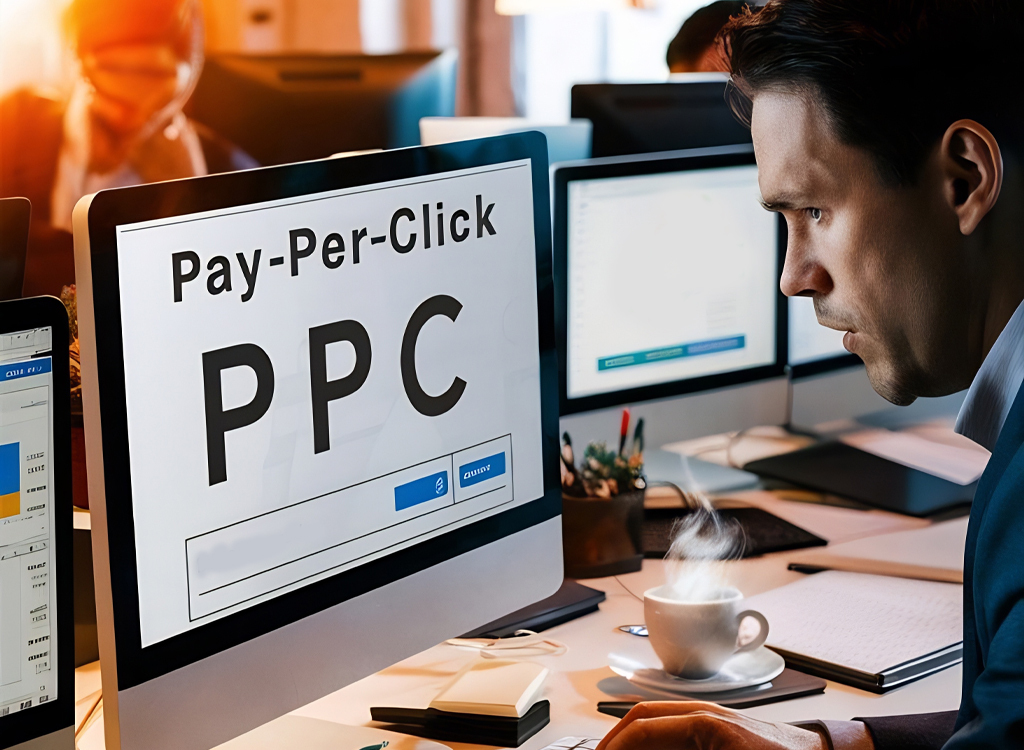What Is PPC Marketing

One of the best and real-time solutions to generate qualified traffic on your website, generate leads and market your brand is PPC marketing (Pay-Per-Click). It gives advertising companies the flexibility and control to reach the correct consumers at the exact moment, and that too with regard to launching a new product, advertising a service, or just to create brand awareness.
With its speed and the possibility to offer measurable ROI, it is no wonder that PPC has been the most important component of the modern digital marketing processes.
What is PPC?
PPC means Pay-Per-Click, and that is a type of online advertising where you never pay till somebody clicks your ad.
It’s most commonly seen on:
- Google Ads
- Social Media Platforms like Facebook, Instagram, LinkedIn, and TikTok
- Display networks across various websites
Key PPC Marketing Terms You Should Know
A few basics to get you caught up on what PPC campaign management is:
- Search Engine Marketing (SEM): It is a blend of both paid (PPC) and organic strategies to be ranked in Google or Bing search engines.
- Cost Per Click (CPC): The amount you are indeed charged when your advert is clicked.
- Cost Per Mille (CPM): Payment per 1,000 views or impressions your advertisement receives.
- Ad rank: Dictates the position your advert will appear on the results page of the search engine (SERP). It is arrived at by multiplying your Quality Score by your bid.
- Quality Score: A metric came up with Google that verifies the efficiency and readiness of your advertisement.
- Bid: The most money that you are prepared to pay per click.
- Ad Groups: Make your keywords and advertising messages groups according to theme or campaign objective.
Paid vs Organic Marketing: What's the Difference?
Both PPC advertising and organic marketing (like SEO) are crucial for long-term success.
PPC (Paid Search)
- Instant visibility
- Fast traffic & leads
- Budget control
- Great for promotions or product launches
Organic (SEO)
- Long-term growth
- Builds brand authority
- Slower to see results
- Cost-effective over time
Benefits of PPC Marketing
Using a PPC campaign optimized to run well can enrich your business. Here’s why:
- Instant Results: Be on the first page of search results in days and not months.
- Targeted Reach: To expose ads to demographics, local cities, devices and even time of day.
- High-Intent Traffic: Close people who are looking to find your service or your product.
- Measurable ROI: Impressions, conversions and clicks can be measured.
- Data-Driven Insights: Learn to use performance data to make improvements on ads, landing pages and even SEO.
- Flexible Budgeting: You can stop, scale, modify or revisit a campaign at any given time.
What Are the Main Components of a PPC Campaign?
Creating an effective PPC campaign takes careful strategy. Here are the key elements to set up your ads for success:
- Target Keywords
- Use the right, high-conversion keywords that your target audience uses.
- Resources, such as Google Keyword Planner, can help you.
- Headline
- Leading with your primary keyword (e.g. “Inexpensive Wedding Dresses”).
- Make it attention-grabbing and click-worthy!
- Display URL
- Clean, branded, and includes your keyword if possible.
- Ad Description
- Pay attention to benefits, main persuasive points, and an obvious CTA (Call to Action).
- Make it brief and convincing.
- Landing Page
- Match it to the ad intent.
- It should be fast, mobile-friendly, and focused on conversions.
- Bidding Strategy
- Set a maximum CPC you're willing to pay.
- Adjust bids based on performance.
- Audience Targeting
- Set demographics, interests, devices and even locations.
Types of PPC Campaigns
Its various objectives require different forms of PPC advertisements. Here are the most common:
1. Search Ads
- Show on the first page of Google or Bing when people put in a particular term.
- Text-based, high intent.
- Ideal for service-based businesses or local businesses.
2. Display Ads
- Banner ads displayed on the website, app or YouTube.
- Awesome for retargeting or visual campaigns.
- Eye-catching and branding.
3. Social Media PPC
- Sponsored posts or displayed ads on Facebook, Instagram, LinkedIn, TikTok and X (Twitter).
- Very focused with great engagement metrics.
- Best for brand awareness, lead generation, and e-commerce.
Pay Per Click Optimization Tips
To have profitable PPC marketing, irrelevant traffic should be blocked with the assistance of negative keywords, and mobile traffic should be optimized. Always remember to A/B test your headlines and CTAs, always keep track of conversions, e.g. via Google Ads.
Final Thought
PPC advertising is a kind of shortcut to leads, sales and exposure. As a start-up or as an established brand, a proper PPC campaign management plan puts you in control and provides you with insights and actual outcomes.
It is not all about buying clicks but about buying performance. Knowing what PPC is, as well as how to set it up and how to optimize a campaign, will enable you to transform each click into a customer and each dollar spent on ad campaigns into a measurable increase.
Boost your growth with data-driven PPC; partner with Run Marketing today!
FAQs
What Is PPC Marketing?
PPC marketing is a paid advertising method where you pay only when someone clicks your ad, helping drive targeted traffic quickly.
Why Use PPC Marketing?
PPC marketing helps businesses get instant visibility, reach the right audience, and achieve measurable ROI.
How To Optimize PPC Marketing?
Improve PPC marketing by using negative keywords, smart bidding, and refining audience targeting.
